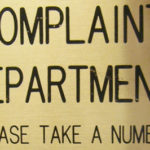I've heard about small loans to the poor, but what are they, and how can I participate?
These loans are made primarily to the poor to begin or expand small businesses. They're called microloans, and they are one part of microfinance, which also includes insurance and training to help the poor use the loans and to understand how to operate a business.
Banks and lending agencies historically have not offered small loans to the poor, because such loans are considered high risk and offer little profit. In 1976, Muhammad Yunus, a Bangladesh economist, examined the feasibility of offering small loans to the poor who could not otherwise receive loans. Loans as low as $25 were made, primarily to poor women. Out of this effort, the Grameen ("rural" or "village") Bank came into being. Ninety-seven percent of the borrowers in July 2011 were women. Ninety percent of the bank is owned by those whom it serves. The bank has operated solely on its own income since 1995, when it stopped accepting donations. Yunus and the Grameen Bank received the Nobel Peace Prize in 2006 "for their efforts to create economic and social development from below."
Practicing Jesus' teachings can include eradicating extreme poverty, achieving universal primary education, eliminating diseases that especially target children and the poor, and providing safe water for all people. The practices associated with the Year of Jubilee (Leviticus 25), particularly the restoration of the land to its original owner, were intended to allow families to provide for themselves. Such provision is one outcome of microloans.
You can participate in one of two ways. You can donate to an agency that offers loans to the poor. Among the possibilities you can find on the Internet, I suggest you look at two: www.kiva.org and www.opportunity.org (If you know of other good options, please email me at [email protected].). The process is similar for these and other sites. I'll use Kiva as an example. Kiva allows you to select the type of loan, even the borrower that you will fund. You can participate for as little as $25. If a loan for more than that is needed, you'll pool your donation with others. As the money is repaid, your account is credited with the repayment. When your account reaches $25, you can loan again to someone else, or you can withdraw the money with no interest.
Investing in microfinance also is an option. Should you desire to invest, with associated risks, see www.microplace.com. This broker, registered with the Securities and Exchange Commission, is wholly owned by Ebay, whose founder is a strong advocate for microfinance.
The websites mentioned present details on how to participate, offer a more complete description of the microfinance loans, and tell stories of people who need and who have received loans.
David Morgan, pastor
Trinity Baptist Church, Harker Heights
Sign up for our weekly edition and get all our headlines in your inbox on Thursdays
Right or Wrong? is sponsored by the T.B. Maston Chair of Christian Ethics at Hardin-Simmons University's Logsdon School of Theology. Send your questions about how to apply your faith to [email protected].














We seek to connect God’s story and God’s people around the world. To learn more about God’s story, click here.
Send comments and feedback to Eric Black, our editor. For comments to be published, please specify “letter to the editor.” Maximum length for publication is 300 words.